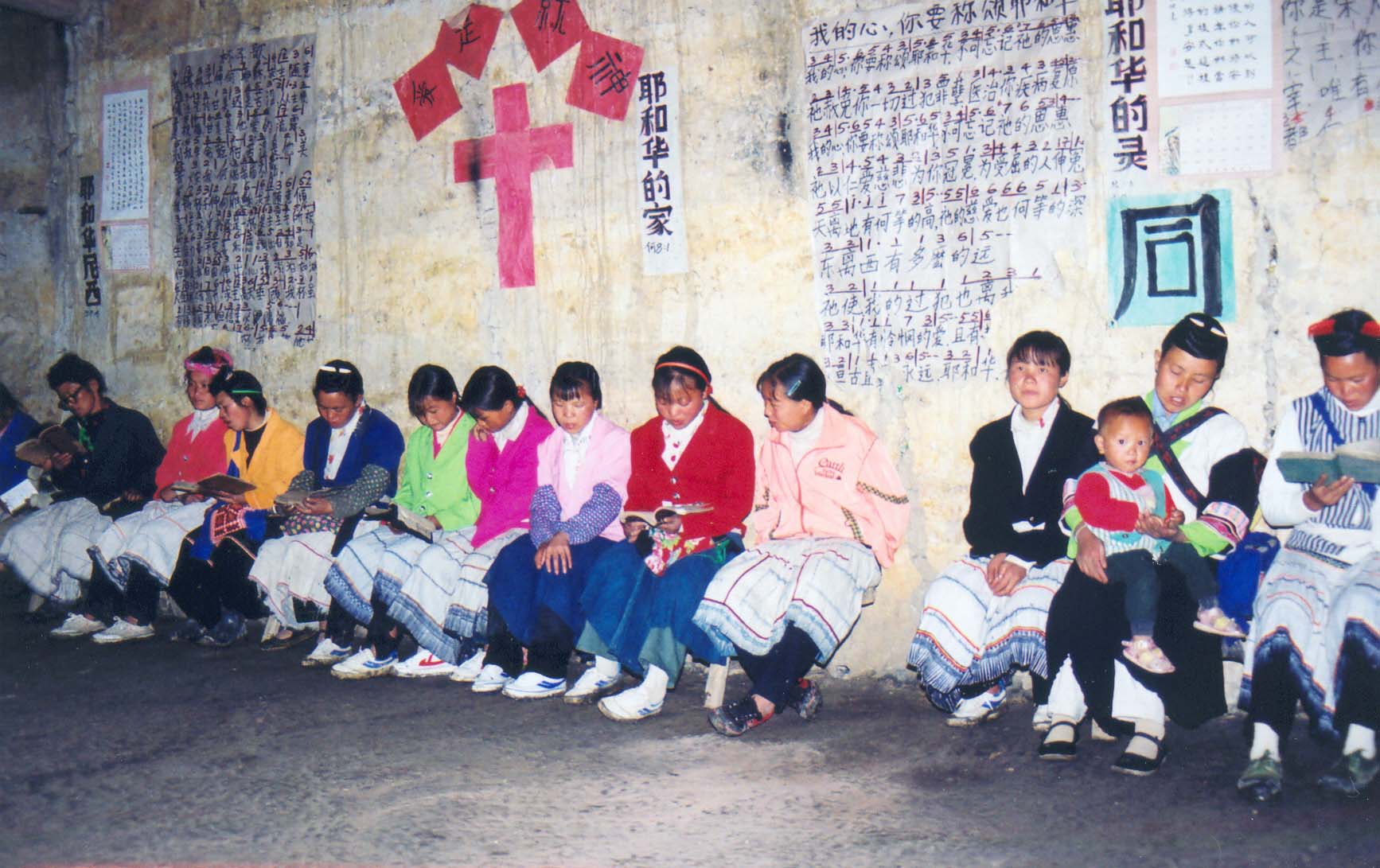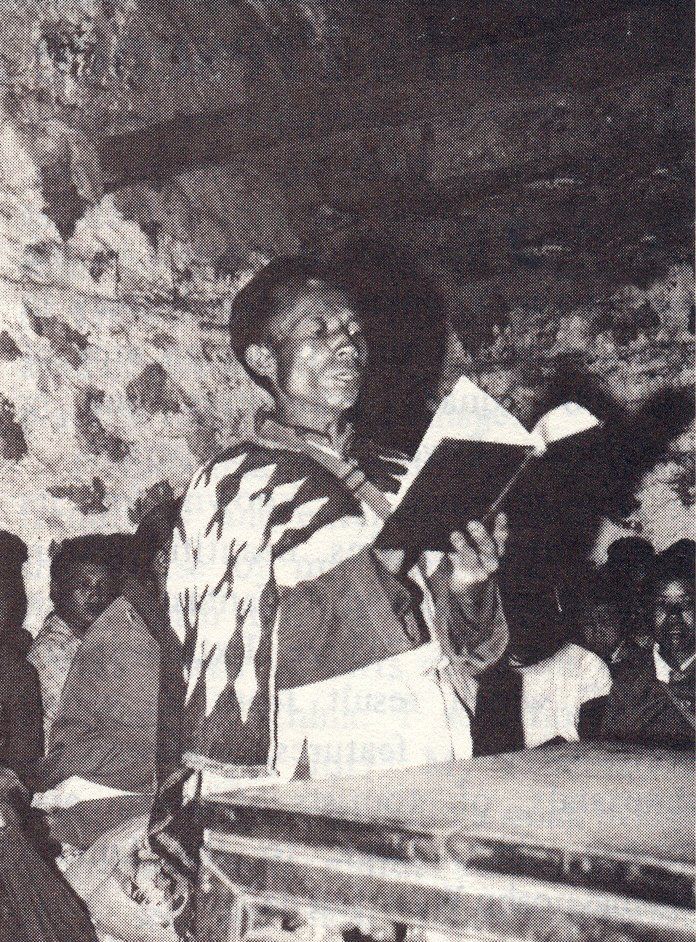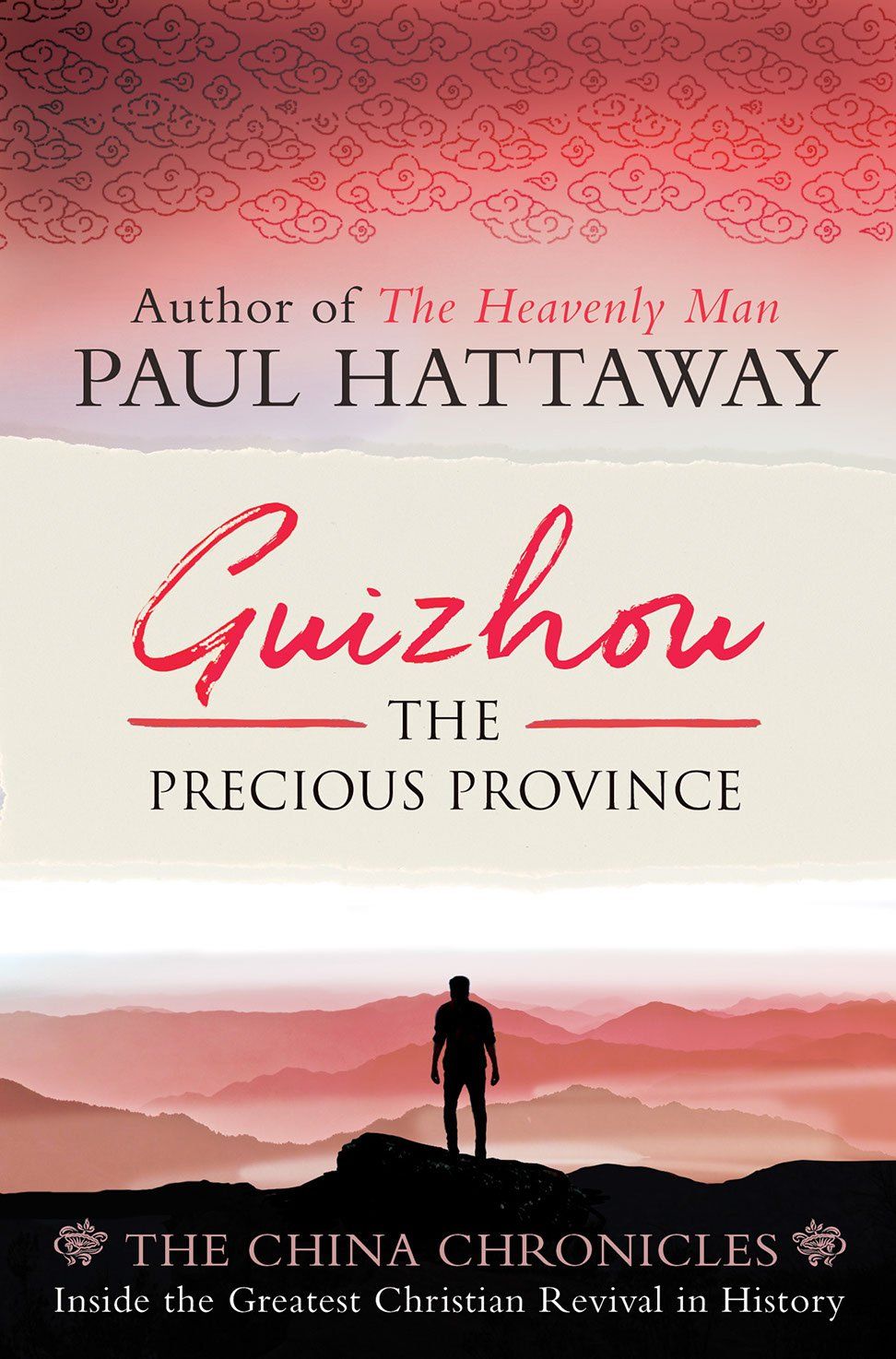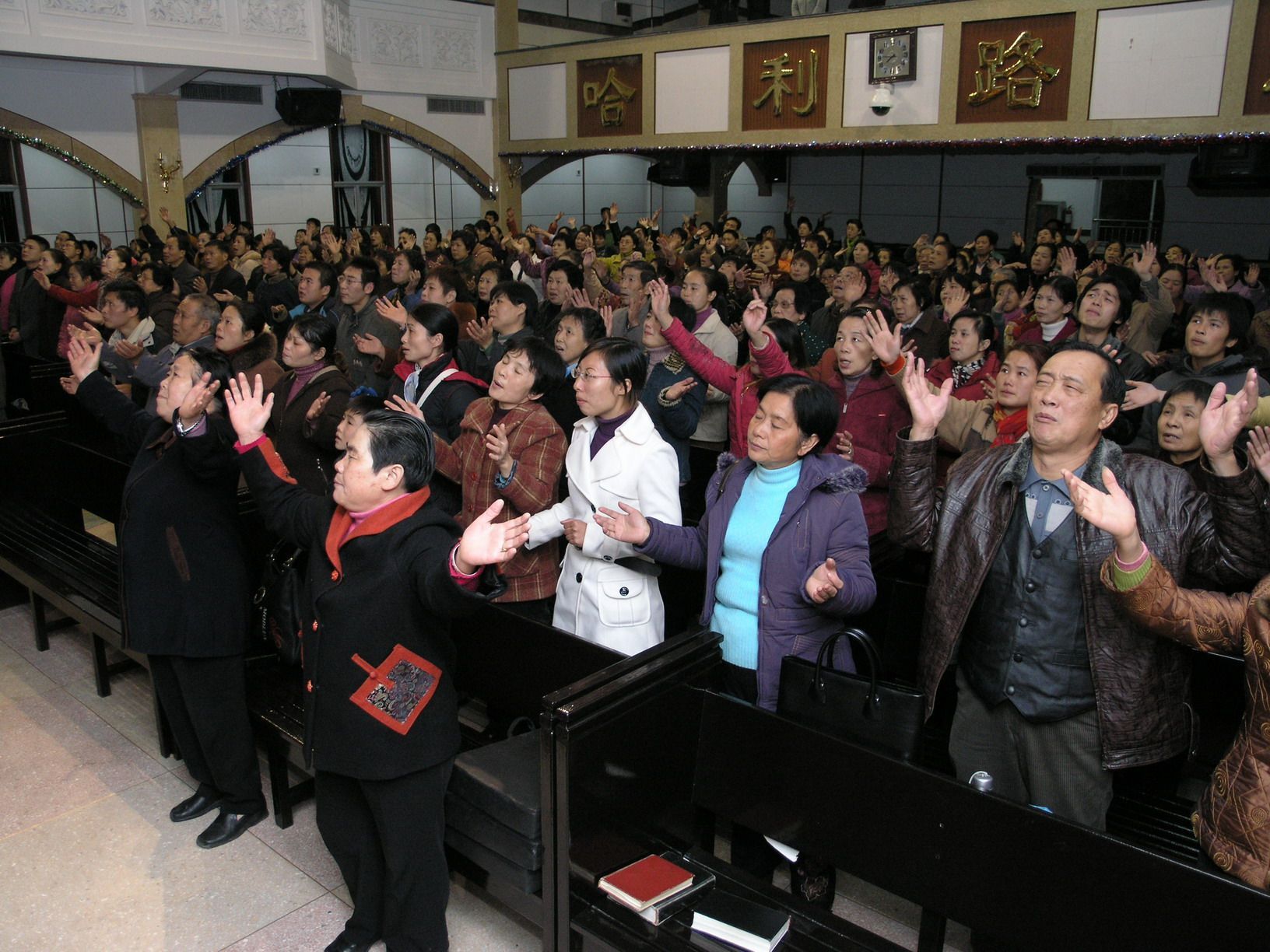1970s

An A-Hmao church in Guizhou. [RCMI]
By the early 1970s, China had become a place of misery for the masses. Disastrous economic policies had led to the starvation of tens of millions of people. The Communist regime, humiliated by their own failed ideology, launched wave after wave of horrific attacks against their own people in a bid to consolidate their power, and an atmosphere of fear and paranoia affected families throughout the country.
In the midst of this harsh environment, the Holy Spirit was still at work in Guizhou, drawing men and women with open hearts to Jesus Christ. A number of conversions of Red Guards occurred at the time, causing much consternation among Communist officials. One young woman, who had joined the Red Guards while still at high school, was sent to be trained as a nurse.
During an assignment at a local hospital, she was told to "change the thoughts" of an outstanding Christian doctor named Shi. She thought the task would be relatively straightforward, and that before long she would have persuaded him to abandon his faith.
The first step for the young woman was to discover all she could about the doctor's background, examining his strengths and probing his weaknesses. She discovered he was raised in a loving Christian home by his widowed mother and three siblings. At university he had topped his class, and was liked and respected by both the faculty and his fellow students. Over time, the young Red Guard spent time with the doctor, and she later said:
"Our friendship progressed, and before long I realized I was falling in love with him. I knew my responsibilities as a member of the Party and it was my duty not to let my feelings get the better of me.
I was having an inward struggle. I both wanted Dr. Shi to renounce his Christian faith and I wanted him as my husband.... One thing perplexed me. Whenever he talked about the things he believed, he had assurance and power and I was unable to stand up to him.... He refused to renounce his faith. I was all the more confused. If Christianity was false as I had been taught, why was Dr. Shi so strong? Marx said that religion was only for the weak.
In spite of my opposition to his beliefs, he continued to be loving and caring toward me. Although his mother had been arrested for preaching the gospel, he bore no grudge but just praised God. Moreover, his mother in prison was not anxious or afraid of death. How could this be?"
The young Communist woman was confused and the witness and prayers of Dr. Shi gradually broke through her resistance and the scales fell from her eyes. She realized that Communism was an empty philosophy with no real answers to life's problems, and she believed that Jesus Christ alone could bring salvation and deliver people from their sins. She humbled her heart and surrendered to God.
The young woman who had been trained to lead the Christian doctor away from his faith herself became a disciple of Christ. Years later, she summed up her life from that point on:
"I, a Communist Party member, became a Christian and a member of God's family. I thank God that He sent such a strong Christian to lead me into the truth. Dr. Shi and I were eventually married. As a result of my conversion I was expelled from the Communist Party. We were both sent 'down to the country' to work in a health clinic, but we saw God's hand in this. Life was hard but we had many opportunities to serve the country people and to share the Lord Jesus with them."
A Barbaric Massacre

Brother Zhang, an A-Hmao evangelist, preaching in a cave church.
The low-point of the Communist brutality against Christians in Guizhou occurred in 1974, when a secret prayer meeting of A-Hmao and Gha-Mu believers at Xinlong Commune in Weining County culminated in the barbaric massacre of hundreds of defenceless believers.
The massacre occurred during Mao's crazed 'exterminate religion' campaign. The local Christians were sternly warned to abandon their meetings and renounce their faith, but they refused to comply, and they boldly told their oppressors:
"The more you forbid Christianity, the more we will cling to the Church. If you confiscate our buildings, we will worship in caves. If you announce the termination of our services, we will develop even more secret meetings. If you attack ordained pastors, we will use even more independent house church preachers instead. If you take action against us on Sundays, we will meet every day of the week and into the night."
This direct challenge to the authority of the Communist Party was more than the officials could tolerate, and when they learned of a large prayer gathering scheduled to take place in a cave on Sunday, July 28, 1974, armed troops were mobilized. They took up positions outside the entrance to the cave before unleashing their machine-guns and grenades on the unarmed Christians, many of whom remained on their knees in a posture of prayer as their lives were brought to an end.
When news of the slaughter spread throughout the region, believers were shocked and they grieved deeply for their dead brothers and sisters. Slowly, as the weeks passed, the effect of the massacre was not one of fear and trembling among the Christian community, but rather the example of the slaughtered believers brought great strength and boldness to the body of Christ.
In hundreds of villages throughout the mountains of Guizhou and beyond, tribal believers made fresh commitments to the Lord Jesus Christ, and they redoubled their efforts to reach the lost. One observer noted, "The persecutions strengthened the Christian movement and led to a significant number of conversions. The number at least doubled according to local church leaders in Guizhou."
A Decade of Destruction
After the massacre at Xinlong and the subsequent revival in many A-Hmao and Gha-Mu villages, the persecution didn't cease, and waves of diabolic hatred continued to roll in against Guizhou's minority believers during the remainder of the 1970s.
In March 1978, the authorities launched another campaign against those they described as 'counter-revolutionaries hiding under the cloak of religion'. Not for the first time, Xiaoshiqiao village was targeted for special treatment. News later emerged of how
"Two hundred militia armed with rifles and machine-guns surrounded the village and demanded that they give up their faith in Christ. There was no answer, so the militiamen charged up the hill and took all the men in the village prisoner. They were trussed up like pigs and carried down to the town jail. The village head was sentenced to seven years in jail but was released after only one year. Eventually the cadres apologized to the people.... The Christians replied, 'We do not blame you at all. These events fulfil what is prophesised in the Bible. Christians must suffer. The gate to heaven is narrow.'"
The following year, 1979, brought more sorrow and pain for the Miao Christians at Stone Gateway, when an evangelist, Zhang Youxue, was arrested and tortured to death. His two sons, Zhang Mingcai and Zhang Mingan, were hunted like wild animals, and in an attempt to escape their pursuers they jumped into a river and drowned. This incident also caused many lukewarm believers to return to the churches, and once again the result was an increase in the number of Christians.
The 1970s was a terrible decade of destruction for the churches of Guizhou, yet by the supernatural hand of God, the body of Christ had survived the onslaught.
Left confused and red-faced by 30 years of failed attempts to obliterate the Church, the government had been taught the same lessons that Pharaoh experienced many centuries earlier. The Bible says of the Israelites in Egypt, "The more they were oppressed, the more they multiplied and spread" (Exodus 1:12). The same dynamic had occurred among the Church in Guizhou in the 1970s.
© This article is an extract from Paul Hattaway's book 'Guizhou: The Precious Province'. You can order this or any of The China Chronicles books and e-books from our online bookstore.





